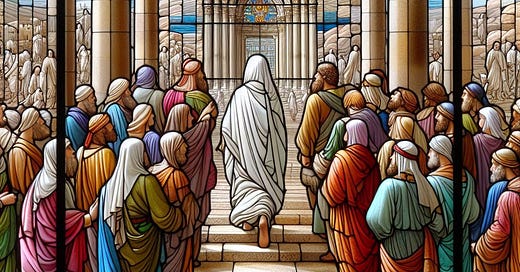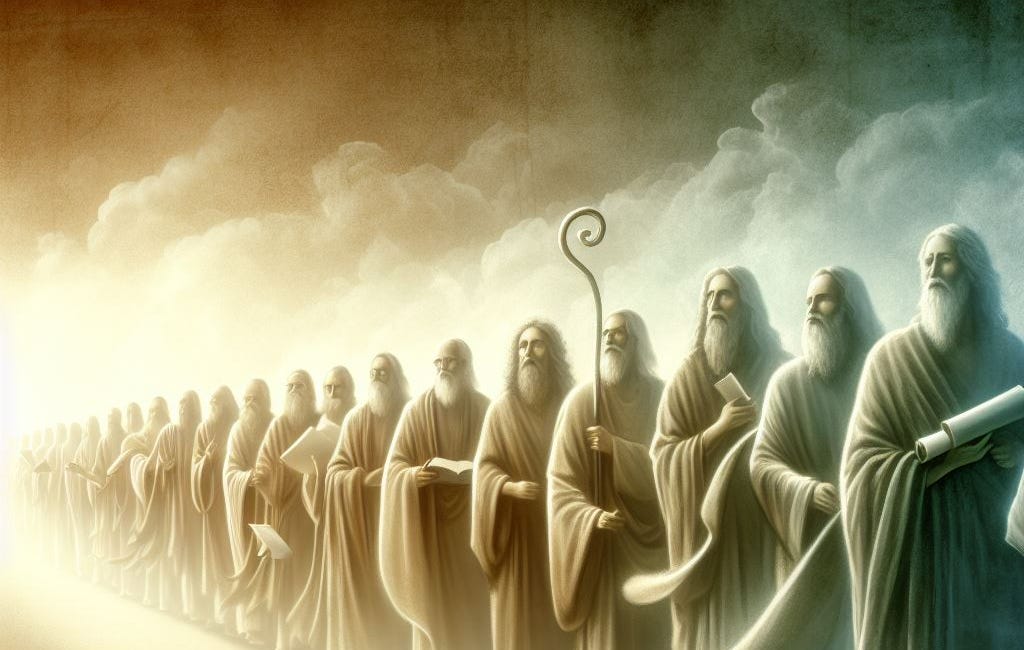Some more thoughts about how things seemed to be quite condensed in various Bible stories after I wrote this (I thought I had put more things in than I really had.) THings conspired against me for getting to my computer on Tuesday, or I would have posted this then.
Biblical Condensation
Well, my nonchalantness about the possible rain today and tomorrow was answered by the rain being “freezing rain”. Fortunately, not actually an ice storm, but enough so that there was ice forming on the windshield as we drove last night. The roads stayed mostly clear, though. No slip-sliding, for us or other people. A few idiots, like the car that was g…
When David moved the Ark of the Covenant from where it had been stored after the Philistines captured and returned it, he tried twice. The first time they tried moving it by oxcart, the same way the Philistines had moved it, and a man died by stretching out his hand to steady it. The Bible doesn’t say so, but someone must have researched the proper way to move the Ark afterwards, since the second time they moved it the proper way, it was carried by its poles by the Levites.
No mention is made of whether they were still using the coverings for it described in Numbers 4, or if that had been forgotten in the centuries since.
It took me most of the morning and some of yesterday afternoon to find where the coverings for the tabernacle furnishings were. I kept looking in Exodus. I did find the part where Aaron was supposed to bathe and change his clothes in the sanctuary both before and after entering the Holy of Holies.
Also, if I’m reading things right (which I may not be, it could be referring to something else entirely), the system Eli’s sons were getting in trouble for using for which meat they got from the offerings might have been closer to what was originally stated (the priests get the breast and right thigh) than what they were supposed to be doing in the text (boiling the meat, then taking whatever they could grab with a fork). Then again, the issue might have been the heart rather than the actions.
In the time between Solomen building the temple and its destruction at the Babylonian captivity, there are several incidences of the kings taking the gold from the temple and using it to pay tribute. Without mentioning that they replaced the gold articles. Then again, at least twice they had major reconstruction of the temple, where they needed to replace much of the stonework with fresh dressed stone. And it is specifically mentioned that the moneys collected for this were to be used for the reconstruction, not to buy goldwork or anything like that. So maybe they had a constant money-raising fund going for incidentals like gold work.
But if the temple in Jerusalem needed major repairs in that time, by the time they moved out of the Tabernacle in Shiloh, it must have been undergoing repair almost constantly. Maybe looking old and grubby.
Isaiah’s phrase for God, “The Holy One of Israel” is beautiful. Alas that none of the other writers took it up.
Jeremiah wrote frequently (I’m paraphrasing), “You better behave, or you’ll end up like Shiloh.”
Um, excuse me, sir, I’m sure your original audience knew what happened at Shiloh, but for us joining late, what did happen there? It isn’t recorded in scripture, that I know of.
And speaking of Jeremiah, telling people at war that they needed to surrender, and things would go well? No wonder they kept putting him in prison.
And then there’s the absolute head-tilting information that Josiah the king kicked the male shrine prostitutes out of the temple. As well as the Asherah poles and Ba’al idols. Um, excuse me? Who let them into the temple in the first time? I know there was continual issues of shrines in the high places. But in the temple itself? I know it must have begun sometime after King Hezekiah, since he did major reforms, and it would have been mentioned at the time.
And the writer of Kings seemed to venerate King Hezekiah even more that the writer of Samuel venerated King David.





John Gill says of the 'Shiloh' reference:
and see what I did to it, for the wickedness of my people Israel; he refused and forsook his tabernacle there; he suffered the ark, which was fetched from thence in the times of Eli, to be taken and carried captive, and that because of the sins of his people, Psa 78:60. Jerom (m) says, in his time, the altar that was pulled down was shown, though scarce the foundations of it were to be seen. Now the Lord would have these people consider what was done to Shiloh; that though this was the first place where the tabernacle was set in the land of Canaan, and so the inhabitants of it had antiquity on their side; yet this did not secure them, nor the tribe it was in, from being rejected by the Lord, when they sinned against him; nor should the tribes of Judah and Benjamin think themselves secure because of the temple of the Lord, since they might expect he would do to them for their sins what he had done to others before.